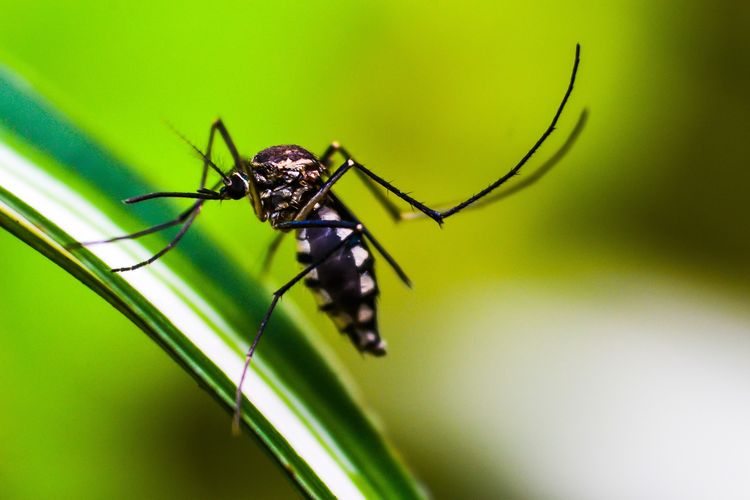KOMPAS.com – One study found mosquito causes of dengue hemorrhagic fever (DHF), Egyptian temples, in Cambodia and Vietnam it has shown immunity to insecticide.
The findings also raise concerns about the implications of communicable disease control.
As we know, mosquitoes Temples of the Egyptians they are the main carriers of yellow fever, dengue fever and Zika virus.
These insects are found in many tropical and subtropical regions of the world and their population numbers are mostly controlled using insecticides.
Many of these insecticides belong to a class of chemicals called pyrethroids. Insecticide it targets the insect’s nervous system and causes paralysis and death.
Read also: Only female mosquitoes suck human blood
Pyrethroid resistance is also a widely recognized problem when trying to control them mosquito population. However, it’s not clear how big the problem is.
Quoted from new scientist, On Thursday (12/22/2022), to find out, Shinji Kasai of the National Institute of Infectious Diseases in Tokyo and his colleagues took samples of 23 mosquito populations from Ghana, Cambodia, Taiwan, Vietnam and Indonesia.
The team sprayed the mosquitoes in each population with large doses of permethrin, a commonly used pyrethroid insecticide that should theoretically kill 99% of the insects.
Researchers found that less than 20% of mosquitoes native to Vietnam were killed.
Kasai and his colleagues then analyzed the genomes of two mosquito populations in Vietnam that were highly resistant to the insecticide.
https://www.youtube.com/watch?v=32rdeyalQhM
Read also: Why are mosquitoes attracted to human blood? explains the scientist
 The way to get rid of mosquitoes is not only using sprays or lotions, you can also keep mosquito repellent plants.
The way to get rid of mosquitoes is not only using sprays or lotions, you can also keep mosquito repellent plants.
They found that a specific mutation called L982W was linked to pyrethroid resistance.
The researchers then looked for mutations previously associated with pyrethroid resistance in mosquito populations from Singapore and Cambodia that displayed high levels of resistance to the insecticide.
The researchers found 10 different types of mosquitoes, some of which contained L982W combined with other pyrethroid-resistant mutations.
As a result, the researchers found that mosquitoes with the L982W mutation had a 50- to 100-fold increase in the amount of pyrethroids they could tolerate.
Read also: How do mosquitoes detect human odors to bite?
Additionally, mosquitoes with combined mutations including L982W survived 500- to 1,000-fold when exposed to higher doses of pyrethroids.
As with over 90 percent of the mosquitoes collected in Phnom Penh Cambodia belong to this type.
“This suggests that control programs that rely on pyrethroid spraying should consider alternatives, even though cases of pyrethroid resistance may already be on the rise and widespread,” said David Weetman of the Liverpool School of Tropical Medicine. in the UK.
Study of the results insecticide resistant mosquitoes in Cambodia and Vietnam it was published in The progress of science.
Read also: Why do mosquitoes buzz in our ears? Here is the explanation
Get updates Featured News and latest news every day from Kompas.com. Let’s join the Telegram group “Kompas.com News Update”, like click on the link https://t.me/kompascomupdate, then join. You must first install the Telegram application on your mobile phone.
/data/photo/2021/09/04/61332e48cbd76.jpg)

